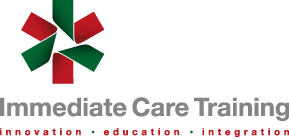

Basic Life Support (BLS) & The Management of Medical Emergencies in the clinical setting
£150.00 p/p
5-hours (Approx.)
Synopsis: This course equips healthcare professionals with the essential skills and knowledge needed to effectively handle medical emergencies and provide basic life support within clinical settings. The course focuses on practical scenarios commonly encountered in various healthcare environments, ensuring that staff members are prepared to act swiftly and confidently during critical situations.
Course Details
Key Components:
Understanding Medical Emergencies in Clinical Settings:
- Identification of common medical emergencies such as syncope, allergic reactions, chest pain, and seizures.
- Recognizing early warning signs and risk factors.
- Protocols for assessing patient vital signs and levels of consciousness.
Emergency Preparedness and Response:
- Establishing an emergency action plan for clinical settings.
- Role assignment and effective communication during emergencies.
- Utilising emergency equipment and resources available in healthcare facilities.
Basic Life Support (BLS) Techniques:
- Hands-on training in cardiopulmonary resuscitation (CPR) for adults and children.
- Proper utilization of automated external defibrillators (AEDs) in cardiac arrest scenarios.
- Techniques for clearing airways and administering rescue breaths.
Management of Specific Emergencies:
- Allergic reactions: Identification, use of epinephrine auto-injectors, and managing anaphylaxis
- Syncope (fainting): Positioning, assessment, and supportive care
- Chest pain and cardiac emergencies: Early recognition, response, and coordination with emergency medical services.
Course Format: This course is delivered through a combination of short presentations, interactive workshops, and hands-on simulations. Participants will engage in practical exercises to reinforce their understanding of emergency protocols and BLS techniques. Additionally, case studies and real-life scenarios will be utilised to enhance problem-solving skills and decision-making abilities in high-pressure situations.
Candidate Criteria
This course is designed for the wider healthcare population who may have a role in managing medical emergencies or cardiac arrests in their respective settings. Whether you work in a hospital, clinic, outpatient facility, or other healthcare environment
Course Format
- Discussions
- Skill stations
- Scenarios
- Working in teams
- Equipment familiarisation
- Competency-based assessment